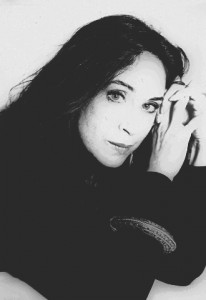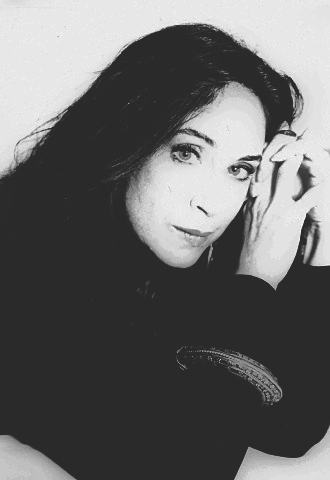
Many great authors do not plan the start of their career. Instead, they are inspired by important events, life experiences or in the case of award-winning author and painter Rikki Ducornet, a dream.
“I think we are all wired as creatures of the creative imagination,” said Ducornet referring to her realization of becoming an author. “Somehow that capacity or yearning or necessity was never taken from me. But I became a novelist by surprise, tossed out of bed at four in the morning by a dream.”
This dream launched a creative career for Ducornet, who was on campus last week as the writer in residence for January 2013. A writer in residence is an author that comes to campus throughout the year for a week and leads writing workshops and gives talks and readings to students. Previous writers in residence include Canadian poet Lisa Robertson, who was on campus last year.
During Ducornet’s workshop with students, her engaging personality was ready to help students tackle their challenging work and give them tools to use in the future. The casual workshop setting allowed students the opportunity to ask Ducornet questions about their own work as well as hers without any added pressures. Her teachings included exercises, class discussions, and a discussion of her own personal experiences with the writing process.
“I asked everyone to think of a place within their work where there was stagnation; things had stopped or were slowing down. And to find a way to break in a storm, an act of carelessness, the arrival of a beautiful or malevolent stranger,” said Ducornet.
As an exercise to get the creative mind flowing, she gave students an open ended sentence and let them decide where it should go. An example is: “to escape her punishment, she flung herself in a room full of ashes.” She let students expand on this sentence for four or five minutes. Ducornet explained that she wanted the students to focus on rupture as a point of departure.
Ducornet also offered the advice that when an author is working on a novel, they should not have a preconceived notion for where the story is going.
“Work from a very deep and personal place, where your imagination is fired up. Work on an authentic journey, not a best seller,” said Ducornet.
She also talked about finding the right publisher and readership as key to the success of a book.
“Everything is not destined for publication or publication beyond a small press,” said Durcornet. “What is important is that your work finds people that can connect and understand it. It should matter to their life.”
Ducornet also works as a painter.
“The current work is on large sheets of heavy rag paper and painted with heavily pigmented water color; these are imaginary botanicals among other things. I have been involved with Surrealism for most of my painting life since 1962,” said Ducornet.
Her books and artwork are both popular abroad. In 2007, her paintings were shown in the solo show “Desirous” at the Pierre Mendard Gallery located in Cambridge, Mass, as well as “O Reverso Do Olhar” in Coimbra, Portugal.
Ducornet has also been a writer in residence for other notable institutions such as Brown University, Naropa University, Bard College and at the Vermont Studio Center, as well as at DU from 1988—2000.
Durcornet attended Bard University in New York and graduated with a B.A. in Fine Arts in 1964. She is the author of dozens of literary works including novels, collections of short fiction, poetry, essays and books for children. Her most recent work includes the novel “Netsuke,” which was published in 2011 and tells the story of a psychoanalyst who has sexual relationships with his patients. She has received many awards such as the Bard College Arts and Letters award and in 2008 the Academy Award of Arts in Literature from the American Academy of Arts and Letters also in 2008.
Ducornet offers this piece of advice to young students seeking to pursue an interest in becoming an author:
“Be resilient and open to the extraordinary things ahead such as virtual reality or texts that are suspended in the air in three dimensions; books one can walk into,” said Ducornet. “Everything is mutable and that includes the forms books take.”











